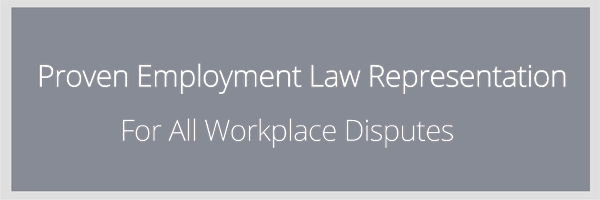The Warshawsky Law Firm represents employees who have suffered sexual harassment in the workplace. “Sexual harassment” includes unwelcome sexual advances, requests for sexual favors, and other verbal or physical harassment of a sexual nature. It also can include offensive remarks about a person’s sex. Both the victim and the harasser can be either a woman or a man, and the victim and the harasser can be the same sex.
Sexual harassment is often described as either “quid pro quo” or “hostile work environment.” “Quid pro quo” sexual harassment is where a person in a position of authority demands sexual favors in exchange for employment, promotions, or job benefits. “Hostile work environment” sexual harassment is where the words and actions of a supervisor or coworker create a sexually abusive or intimidating workplace that negatively impacts another employee’s ability to do his or her job. (This is essentially the same standard as hostile work environments based on other protected characteristics, such as race or age.)
Examples of sexual harassment can include:
- unwelcome or inappropriate touching
- offensive or suggestive gestures or comments
- asking about a person’s sex life
- making sexualized remarks about a person’s appearance, body, or style of dress
- displaying pornographic images, videos, and cartoons
- telling sex jokes
- making sexist comments
Federal, state, and local employment laws uniformly prohibit sexual harassment, although the procedural rules and legal standards can be very different. These laws include:
- Title VII of the Civil Rights Act of 1964:
Title VII is a federal statute, 42 U.S.C. § 2000e et seq., that prohibits sexual harassment in the workplace. Title VII applies to employers with 15 or more employees, including federal, state, and local governments. To assert a claim under Title VII, a plaintiff must first file a charge of discrimination with the EEOC, generally within 180 days of the alleged act of harassment. Note: Federal employees must complain to their agency’s EEO office within 45 days of the alleged act of harassment.
To allege illegal sexual harassment under Title VII, a plaintiff must show that the workplace is permeated with discriminatory intimidation, ridicule, and insult that is sufficiently severe or pervasive to alter the conditions of the victim’s employment and create an abusive working environment. The plaintiff must show not only that he or she perceives the harassment as hostile or abusive (the “subjective” test), but also that a “reasonable person” would find the harassment hostile or abusive (the “objective” test). Generally, unless a single incident of harassment is “extraordinarily” severe, the harassment must be “continuous and concerted” in order to be deemed unlawful. But Title VII is not a “general civility code” and “mere offensive utterances” and “stray remarks” are not enough to violate the law.
- New York State Human Rights Law:
The New York State Human Rights Law, N.Y. Executive Law, Article 15, is a comprehensive non-discrimination and non-retaliation statute that prohibits sexual harassment in the workplace. The State Human Rights Law applies to all employers in New York, including state and local government agencies. A plaintiff wishing to assert a claim under the State Human Rights Law may file a lawsuit in court (with a 3-year statute of limitations) or a complaint with the State Human Rights Division (currently with a 1-year statute of limitations), but not both (this is known as an “election of remedies” provision).
Although for many years the State Human Rights Law was interpreted the same as Title VII, it was amended in 2019 to broaden the protections under the statute, including rejecting the “severe or pervasive” standard for sexual harassment. The law now provides that “harassment is an unlawful discriminatory practice when it subjects an individual to inferior terms, conditions or privileges of employment because of the individual’s membership in one or more of these protected categories.” But the law still requires harassment to be more than “petty slights or trivial inconveniences.”
- New York City Human Rights Law:
The New York City Human Rights Law, N.Y.C. Administrative Code, Title 8, is a comprehensive non-discrimination and non-retaliation statute that prohibits sexual harassment in the workplace. The City Human Rights Law applies to employers in New York City with 4 or more employees, including government agencies – but it applies to all employers, regardless of size, for claims of gender-based harassment. A plaintiff wishing to assert a claim under the City Human Rights Law may file a lawsuit in court (with a 3-year statute of limitations) or a complaint with the City Human Rights Commission (with a 1-year statute of limitations, but 3-years for claims of gender-based harassment), but not both (this is known as an “election of remedies” provision).
Unlike federal law, and until recently state law, the City Human Rights Law is a uniquely broad and protective statute that imposes a less stringent standard for proving unlawful sexual harassment. Under the law, a plaintiff alleging sexual harassment need only demonstrate that he or she was treated “less well than other employees.” But the conduct alleged must exceed “what a reasonable victim of discrimination would consider petty slights and trivial inconveniences,” and “mere personality conflicts” will not suffice to establish a hostile work environment.
Please note: The above summary is for general informational purposes only. The various federal, state, and local employment laws have different procedural rules, different legal standards, and/or different potential remedies. All laws do not apply to all employers, to all employees, or to all workplace problems. Employment law is multi-layered and can be quite complicated – which is why it is imperative to consult a qualified employment lawyer regarding all workplace issues and disputes.
If you or a loved one has suffered sexual harassment in the workplace, please contact The Warshawsky Law Firm for a free consultation.



